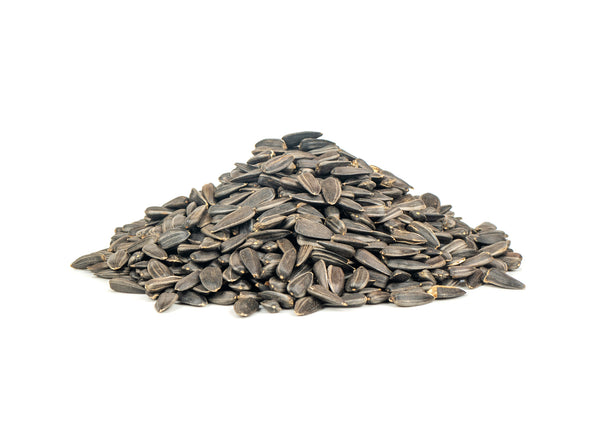Sunflower Seeds
Sunflower seeds are the edible seeds of the sunflower plant. They are typically encased in a black-and-white striped shell and are small, oval-shaped, and light gray in color when shelled. Sunflower seeds are rich in nutrients and widely consumed as a snack or ingredient in various culinary and non-culinary applications.
Reviews (0)
Types of Sunflower Seeds
-
Oilseed Sunflower Seeds:
- Smaller seeds with higher oil content.
- Used to extract sunflower oil.
-
Non-Oilseed or Confectionery Sunflower Seeds:
- Larger seeds with lower oil content.
- Commonly consumed as snacks or ingredients.
Nutritional Profile
Sunflower seeds are a nutrient-dense food, providing:
-
Macronutrients:
- High in healthy fats (monounsaturated and polyunsaturated fats).
- Good source of protein.
- Moderate carbohydrate content.
-
Micronutrients:
- Rich in Vitamin E, a powerful antioxidant.
- High in selenium, magnesium, and zinc.
- Contains B vitamins like folate and niacin.
-
Other Compounds:
- Contains phytosterols, which may support heart health.
- Provides dietary fiber for digestion.
Health Benefits
-
Heart Health:
- Rich in unsaturated fats, which help reduce bad cholesterol (LDL).
- Vitamin E and antioxidants protect against oxidative stress.
-
Bone Health:
- High magnesium content supports bone density.
-
Immune Support:
- Selenium and zinc enhance immune system function.
-
Skin and Hair:
- Vitamin E helps in maintaining healthy skin and preventing aging.
-
Blood Sugar Regulation:
- Contains compounds that may improve blood sugar levels in diabetes.
Culinary Uses
-
Snacks:
- Roasted and salted sunflower seeds are popular as a healthy snack.
- Can be flavored with spices for variety.
-
Baking:
- Added to bread, muffins, and cookies for texture and flavor.
-
Salads and Bowls:
- Sprinkled over salads, smoothie bowls, or oatmeal for a crunchy topping.
-
Butters and Pastes:
- Processed into sunflower seed butter, a nut-free alternative to peanut butter.
-
Cooking Oil:
- Extracted sunflower oil is widely used for cooking and frying.
-
Garnish:
- Used as a garnish for soups and stir-fried dishes.
Non-Culinary Uses
-
Bird Feed:
- Sunflower seeds are a key ingredient in bird food mixes.
-
Cosmetic Products:
- Sunflower oil is used in lotions, creams, and hair products for its moisturizing properties.
-
Industrial Uses:
- Sunflower seed husks are sometimes used in biofuel production or as animal feed.
Storage and Tips
- Storage: Keep sunflower seeds in an airtight container in a cool, dry place to prevent rancidity. Refrigeration can extend shelf life.
- Usage Tip: Toasting sunflower seeds enhances their flavor and aroma.
Sunflower seeds are a versatile, nutritious, and widely loved food with applications spanning snacks, cooking, health, and industry.
